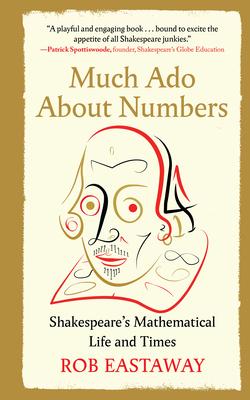Shakespeare's era was abuzz with mathematical progress, from the new concept of "zero" to Galileo's redraft of the heavens. Now, Rob Eastaway uncovers the many surprising ways math shaped Shakespeare's plays--and his world--touring astronomy, code-breaking, color theory, navigation, music, sports, and more.
- How reliable was a pocket sundial?
- Was math illusionist John Dee the real-life Prospero?
- How long was a Scottish mile, and what could you buy for a groat?
- Do Jupiter's moons have a cameo in Cymbeline?
- How did ordinary people use numbers day to day?
- And might Shakespeare have tried that game-changing invention--the pencil?
Full of delights for devotees of both Tudor history and the Bard, Much Ado About Numbers is proof that the arts and sciences have always danced together.
